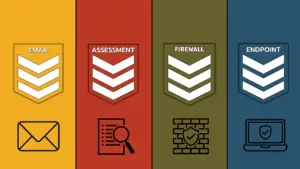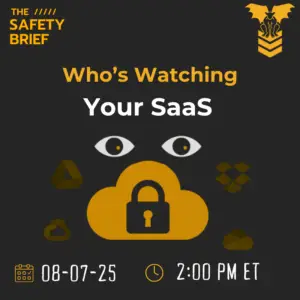Emotet, a self-updating modular trojan horse malware, has again raised its ugly head. Emotet, also known as “The Banker,” was first discovered in 2014 as a banking Trojan. However, over the years, it has evolved into a multifunctional malware that is primarily distributed through spam emails, malicious attachments, and infected links. It is typically delivered via social engineering techniques, tricking users into clicking on supposedly harmless links or opening seemingly legitimate attachments, which then downloads and installs the malware on the victim’s system. This threat is part of a Malware-as-a-service (MaaS) scheme, allowing threat actors to use Emotet as a loader to deploy other malware or ransomware.
Once Emotet gains access to a system, it can publicize itself across the network, stealing sensitive information such as usernames, passwords, and data. Emotet also can download and execute other malicious payloads, such as ransomware or other banking Trojans, making it a gateway for other cyber threats.
The impact of Emotet can be severe and has been responsible for significant financial fraud, including business email compromise (BEC) attacks, which have led to billions of dollars in losses worldwide. Emotet has also been implicated in ransomware attacks.
Detection and Mitigation
Every time a threat appears, whether it’s a zero day or well-known, our Partners ask the appropriate question, “are we protected?”
Endpoint Protection: MAED
Our endpoint protection and defense Partner, Deep Instinct, said the following regarding Emotet:
“ While some of the latest attack vectors are new and never-before-seen threats, Deep Instinct has a proven track record of preventing even the newest attacks from Emotet as well as other sophisticated threat groups with technology that was developed and deployed months (and in some cases even years) before the threats were developed and deployed into the wild.”
In short, those utilizing our MAED service are safe.
Cloud Protection: SCUD
SCUD quarantines the emails containing such malicious files. This prevents delivery to the inbox, and keeps you and your clients safe from Emotet’s latest attacks.
Firewall Protection: SNPR
If the links are on a threat intelligence blacklist, the firewall will automatically block the threat. Zero-day file sandboxing can prevent malicious files from execution. SNPR will also detect command and control traffic, and stop the transactions.
Further Testing
For further confirmation, the BLOKWORX Threat Analyst team recorded their analysis of the threat utilizing two carefully crafted Excel documents. One containined simple Macros to open the calc.exe and another held malicious macros to induce a reverse shell. Utilizing the MAED policy settings recommended by BLOKWORX prevents download of any document containing malicious macros, such as the Emotet documents. Harmless macros remain enabled for day-to-day business.
Protecting Yourself
So, how can you protect yourself and your organization from Emotet and similar malware? Here are some essential preventive measures:
- Be vigilant with emails: Emotet is commonly delivered through spam emails. Be cautious when opening email attachments or clicking on links, especially from unknown or suspicious senders. Avoid downloading or opening any attachments or links that you were not expecting and be wary of emails that appear unusual or contain grammatical errors. (SCUD protects against said emails.)
- Keep software and systems up-to-date: Emotet often exploits vulnerabilities in outdated software and systems. Make sure to regularly update your operating system, applications, and antivirus software with the latest patches and updates to fix known vulnerabilities. (BLOKWORX policy guidelines for MAED protect against emotet.)
- Use strong and unique passwords: Emotet and other malware often rely on weak or compromised passwords to gain access to systems. Use strong, complex passwords and enable multi-factor authentication (MFA) wherever possible to add an extra layer of security.
- Educate employees: Human error is often the weakest link in cybersecurity. Educate employees about the risks of clicking on suspicious links or opening suspicious attachments and provide training on how to identify and report potential security threats.
- Implement network segmentation: Emotet can propagate across networks, so implementing network segmentation can help contain the spread of malware. Segment your network to limit access and minimize the potential damage if Emotet or other malware infiltrates your system. (The firewall will block any known exploits and zero-day file sandboxing. In addition, it will detect traffic and stop the connection, protecting SNPR partners.)
- Regularly back up your data: Regularly back up your critical data and store it securely offsite. This can help you quickly recover from a ransomware attack without paying the ransom.
- Use advanced threat detection tools: If you are not a BLOKWORX partner and would like to know more information on the services provided to prevent these types of attacks, please contact us.
Next Steps
In conclusion, If you’re already a BLOKWORX partner, rest easy that we’re protecting you from known and unknown threats. If you’re not yet a BLOKWORX Partner, we encourage you to conduct a 14-day trial of MAED or SCUD. By following these steps, and employing advanced threat detection tools, you can take crucial steps to protect yourself and your organization.





